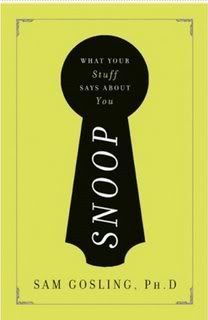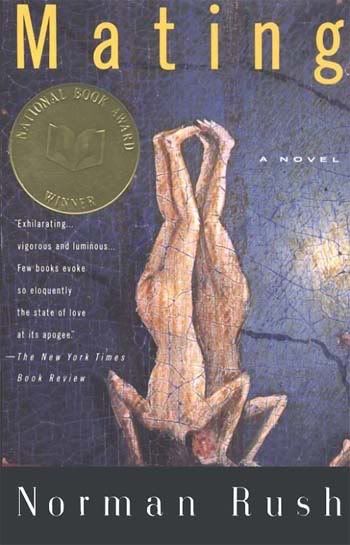The pundits aren't going to cover your city council meeting
Editor and Publisher is reporting still more significant drops in circulation for the country's major newspapers.
Gannett's readership is down 2.5 percent, Knight Ridder's is down 2.9 percent, and the Tribune Company's is down 4 percent, McClatchy's is down 1 percent.
Scripps isn't mentioned, but I think it's safe to say it's struggling too.
The Boston Globe's circulation plummeted about 7 percent, while the New York Times reported a small 0.4 percent increase in its daily circulation.
The most interesting bit of information in the report is this:
I'm convinced this will eventually be considered foreshadowing. I wrote about the newspaper problem last month so there's no need for me to go through all that again. Just watch the numbers; they're going to continue to slide until Someone Who Matters in the industry gets a clue and revolutionizes print journalism's relationship with the web.
Over at The Buzz Machine, some commenters are all too happy to see newspapers suffer. Here are three of the more damning comments:
I get that people on all points along the political spectrum are frustrated with journalists. On the right, they're convinced that the "liberal media" does nothing but unfairly henpeck every move made by the president and his administration. On the left, people are still sore that journalists gave the president such a free ride after Sept. 11 (not to mention how they coddled him in comparison to Al Gore during the lead-up to the 2000 election).
But actively hoping that newspapers — and especially the journalists that keep them running — crash and burn is petty and shortsighted. Despite all the shortcomings of newspapers, they're still the most comprehensive, easily accessible source of information and resources available to the public. This is the point in my argument where you think to yourself, No way, dude, the internet is way better than newspapers! You can get a wider perspective on news and the resources are endless! And you'll be partly right. Because the vast majority of sites you browse to get your information are either newspaper sites or blogs that reference stories that come from newspaper sites. Of course, a lot of news is cribbed from the AP and slapped on various sites, but the AP operates in large part thanks to the enormous amounts of money news organizations pay to subscribe to their services.
Instead of rooting for newspapers to die, these people should be pushing for newspapers to live up to their obligation to the democratic public to provide that essential watchdog function over government and business. And when newspapers and journalists do their jobs well — especially on the small, local scale where real, tangible change can be made and felt — we should let them know that we appreciate what they do for our communities.
The print press may not always be literally the "print" press, but its role in society is vital and needs to be protected and appreciated by everyone, not just journalists themselves.
Hat tip: Jeff Jarvis
Gannett's readership is down 2.5 percent, Knight Ridder's is down 2.9 percent, and the Tribune Company's is down 4 percent, McClatchy's is down 1 percent.
Scripps isn't mentioned, but I think it's safe to say it's struggling too.
The Boston Globe's circulation plummeted about 7 percent, while the New York Times reported a small 0.4 percent increase in its daily circulation.
The most interesting bit of information in the report is this:
The Wall Street Journal reported slight gains due to increases in online subscriptions.
I'm convinced this will eventually be considered foreshadowing. I wrote about the newspaper problem last month so there's no need for me to go through all that again. Just watch the numbers; they're going to continue to slide until Someone Who Matters in the industry gets a clue and revolutionizes print journalism's relationship with the web.
Over at The Buzz Machine, some commenters are all too happy to see newspapers suffer. Here are three of the more damning comments:
It will be a great day to rejoice when the journalism staffs of these papers are out on the streets.
Good riddance to bad rubbish.
Good. The sooner all those bastards go broke the better.
I get that people on all points along the political spectrum are frustrated with journalists. On the right, they're convinced that the "liberal media" does nothing but unfairly henpeck every move made by the president and his administration. On the left, people are still sore that journalists gave the president such a free ride after Sept. 11 (not to mention how they coddled him in comparison to Al Gore during the lead-up to the 2000 election).
But actively hoping that newspapers — and especially the journalists that keep them running — crash and burn is petty and shortsighted. Despite all the shortcomings of newspapers, they're still the most comprehensive, easily accessible source of information and resources available to the public. This is the point in my argument where you think to yourself, No way, dude, the internet is way better than newspapers! You can get a wider perspective on news and the resources are endless! And you'll be partly right. Because the vast majority of sites you browse to get your information are either newspaper sites or blogs that reference stories that come from newspaper sites. Of course, a lot of news is cribbed from the AP and slapped on various sites, but the AP operates in large part thanks to the enormous amounts of money news organizations pay to subscribe to their services.
Instead of rooting for newspapers to die, these people should be pushing for newspapers to live up to their obligation to the democratic public to provide that essential watchdog function over government and business. And when newspapers and journalists do their jobs well — especially on the small, local scale where real, tangible change can be made and felt — we should let them know that we appreciate what they do for our communities.
The print press may not always be literally the "print" press, but its role in society is vital and needs to be protected and appreciated by everyone, not just journalists themselves.
Hat tip: Jeff Jarvis




















0 Comments:
Post a Comment
<< Home